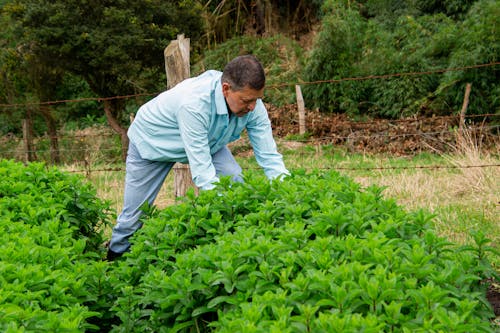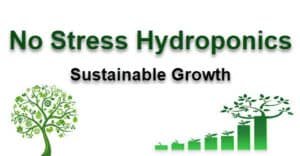
Hydroponics is a method of growing plants in water instead of soil; it has been quickly gaining momentum as an alternative and sustainable way to cultivate food for commercial production, home gardens, and universities alike.
With its growing popularity, it’s important to understand what does – and does not – need to be provided in order for hydroponic farming to be successful.
In this blog post, we will discuss essential elements that you do—and don’t–need when setting up your own hydroponic system, so read on if you are looking to increase the chances of success with this form of gardening.
What Is Hydroponic Farming?
Hydroponic farming is a form of agriculture in which plants are grown without soil. Instead, a nutrient-rich water solution is used as the medium for growing crops. It is an increasingly popular method of cultivation that offers numerous benefits over traditional soil-based methods.
With hydroponics, farmers can grow higher yields in a smaller space with less inputs like water and fertilizer while reducing the risk of weeds or pests interfering with crop production.
Hydroponic systems also provide precise control over growing conditions such as temperature, humidity, and light levels, giving growers greater flexibility when it comes to meeting consumer demand.
Furthermore, since there’s no need to plow or till the ground before planting, this type of farming has fewer environmental impacts than traditional farming techniques. Hydroponic systems are also able to take advantage of natural resources like rainwater or wastewater, making them an even more sustainable choice for food production.
From small-scale home gardens to large commercial operations, hydroponic farming is a growing trend in the agricultural industry that promises improved yields with fewer inputs and less environmental impact.
What Are Some Of The Things That Are Not Needed In Hydroponic Farming?
Hydroponic farming does not require a lot of specialized equipment or materials, but there are certain things that you don’t need. For example, you don’t need soil; instead, the plants grow in nutrient-rich water.
Additionally, traditional fertilizers and pesticides are not required since the nutrients are already present in the water. Lastly, because hydroponic systems rely on recirculating water to deliver nutrients to the roots of the plants, they do not need to be watered manually like regular gardens. This makes them much more efficient and effective than traditional growing methods.
Another thing that is not needed in hydroponic farming is any kind of weed killer as there’s no soil for weeds to take root in. Hydroponic farming can be done indoors or outdoors, meaning you don’t need a large plot of land either.
All you need is the equipment, water, and nutrients to get started with hydroponic farming. Ultimately, suppose you are looking for an efficient way to grow your own food or plants without needing to use soil or traditional fertilizers and pesticides. In that case, hydroponic farming might be the perfect solution for you!
Are There Any Limitations To What Can Be Grown In A Hydroponic System?
Theoretically, any plant can be grown in a hydroponic system. However, some plants may struggle and require more environmental modifications due to their specific needs.
In addition, certain types of hydroponics systems tend to be better suited for particular types of plants. For example, deep water culture (DWC) systems are best used for fast-growing vegetables such as lettuce or herbs that don’t require much root room. On the other hand, nutrient film technique (NFT) systems work best with larger plants that need lots of root room and access to oxygenated water.
Finally, it is important to remember that hydroponic gardening requires more maintenance than soil-based gardening. Nutrient levels must be monitored and adjusted regularly to ensure optimal growth. In addition, the pH of the water needs to be checked often as it can affect plant development if not maintained properly.
Overall, while any plant can successfully be grown in a hydroponic system with some modifications, certain types of systems are better suited for particular plants and they require more maintenance than soil-based gardening. It is important to consider these factors before making any decisions regarding what type of system would best suit your specific needs.
Benefits Of Not Having These Things In A Hydroponic Farm Setting
The benefits of not having soil, pests, and weeds in a hydroponic farm setting are numerous. Without soil acting as a medium for the plant’s roots to grow into, there is no need to worry about tilling, weeding, or pest control – all major steps that can take up precious time and resources when using traditional farming methods.
Additionally, with the absence of soil comes a decrease in water usage since hydroponics allows for more precise irrigation scheduling and less water loss due to evaporation.
Furthermore, hydroponic farms produce crops much faster than their soil-based counterparts; some plants reach maturity in just three weeks compared to months with regular farming.
Overall, because of its efficient use of resources and accelerated growth cycles, hydroponic farming is a far more cost-effective and sustainable method of cultivation than conventional farming.
What Crops Are Best Suited For Hydroponic Farming, And Why Are They Chosen Over Others?
The types of crops that grow best in a hydroponic system depend largely on the specific needs and goals of the farmer and their environment. Commonly grown crops include lettuce, spinach, tomatoes, and peppers as they are relatively easy to grow in hydroponic systems while producing high yields. Herbs can also be successfully grown in a hydroponic system such as basil, dill, mint and parsley.
Hydroponically-grown fruits such as strawberries and melons are becoming increasingly popular with more farmers turning to this form of farming. The controlled environment allows for higher quality fruits compared to those grown outdoors or using soil-based methods.
Some vegetables and herbs have been specially bred to thrive under hydroponic conditions, such as some types of lettuce and cucumber. The use of specially bred varieties has allowed farmers to achieve greater yields in a shorter time frame than traditional outdoor farming methods.
Conclusion
All in all, it is important to do research before starting a hydroponic farm. The last thing you want is to set up your dream farm only to find that you are missing an essential piece of equipment. With a little time and effort, however, you can be sure to have everything you need for a successful harvest.
